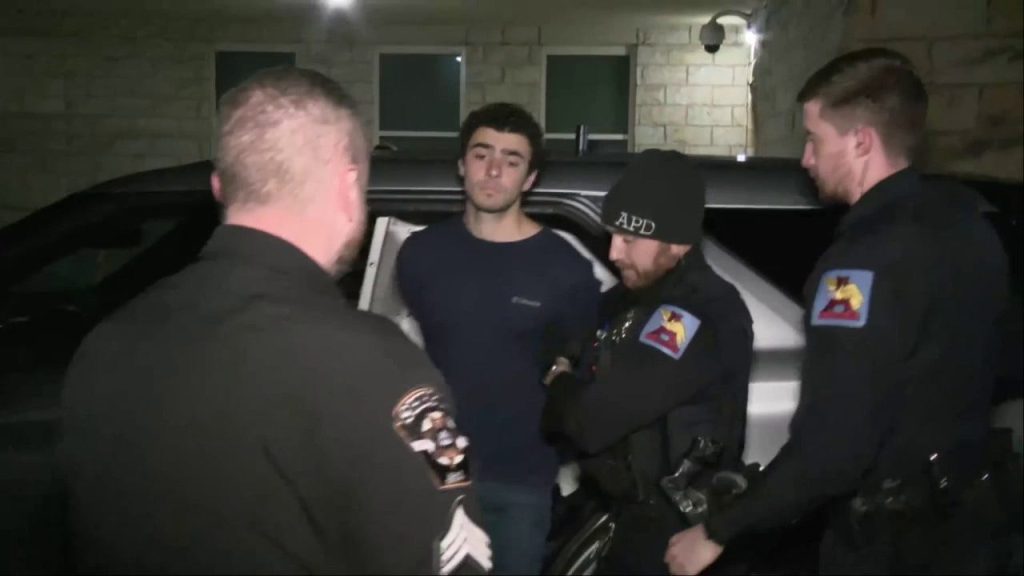Luigi Mangione, a 26-year-old former Ivy League student, finds himself at the center of a complex legal proceeding following his arrest in Altoona, Pennsylvania, in connection to the assassination of UnitedHealthcare CEO Brian Thompson. Apprehended at a McDonald’s after being recognized by an employee, Mangione was found in possession of four fake IDs, a gun and silencer resembling those used in the Thompson murder, and a manifesto railing against the health insurance industry. This discovery has triggered a multi-jurisdictional investigation involving the FBI, NYPD, and the New York District Attorney’s Office. Mangione’s arrest, while peaceful, has yielded little information as he has refused to speak to investigators. He currently faces local charges in Pennsylvania including forgery, unlawful possession of firearms, tampering with identification, possession of instruments of crime, and providing false identification to law enforcement. However, the complexity of the case is likely to delay his extradition to New York City, the scene of the murder.
The discovery of $10,000 in cash, including foreign currency, further complicates Mangione’s situation. Although he disputed the amount, the presence of such a large sum raises questions about his activities and potential flight risk. His claim of recent contact with his family suggests a potential support network that might have aided him. However, the details of these contacts and their potential relevance to the case remain unclear. The next steps involve determining whether to pursue local or federal charges against Mangione. The possession of a “ghost gun,” an untraceable firearm often assembled from kits, constitutes a federal offense, making federal charges a strong possibility. This decision will determine the course of the legal proceedings and significantly influence the timeline for his potential extradition.
The extradition process itself presents further procedural hurdles. Following his arraignment on local charges, Mangione will be served with warrants and indictments from New York City. He can either waive extradition or challenge it in a hearing, which would necessitate a governor’s warrant if the judge approves the extradition. The choice to waive or challenge extradition will significantly impact the time it takes for him to be transferred to New York to face charges related to Thompson’s murder.
Meanwhile, the NYPD is meticulously piecing together the forensic evidence in Thompson’s murder. A discarded water bottle in the alley used by the suspected assassin and a backpack found in Central Park, believed to belong to the shooter, are undergoing DNA analysis. The “enormous” amount of forensic evidence, as described by NYPD Chief of Detectives Joseph Kenny, coupled with Mangione’s alleged possession of the murder weapon and incriminating manifesto, builds a strong circumstantial case against him. DNA evidence retrieved from Mangione, likely through a mandated swab, will be crucial in solidifying the link between him and the crime scene. This process, involving either the FBI Laboratory in Quantico or Pennsylvania State Police facilities, will take several days, further delaying the extradition process.
The local authorities in Pennsylvania played a crucial role in Mangione’s apprehension. Their prompt response to the tip from the McDonald’s manager and their thorough investigation, uncovering the fake IDs and weapon, were instrumental in his capture. This proactive approach highlights the importance of interagency cooperation and the significance of seemingly minor tips in major criminal investigations. Had the local police not taken the tip seriously, the suspect might have remained at large, potentially jeopardizing the investigation and posing a continued threat.
In summary, Luigi Mangione’s arrest marks a pivotal moment in the investigation of Brian Thompson’s murder. However, the legal proceedings surrounding his extradition, coupled with the ongoing forensic analysis and the decision on local versus federal charges, will likely result in a protracted legal battle. The complexities of inter-state jurisdiction, the suspect’s right to due process, and the need for meticulous forensic analysis all contribute to the extended timeline before Mangione can be brought to New York to face charges directly related to the assassination of the UnitedHealthcare CEO. While Mangione’s silence and refusal to cooperate further complicates matters, the evidence collected thus far points towards a strong case against him. The coming days and weeks will be critical in unraveling the full extent of his alleged involvement and bringing him to justice.


